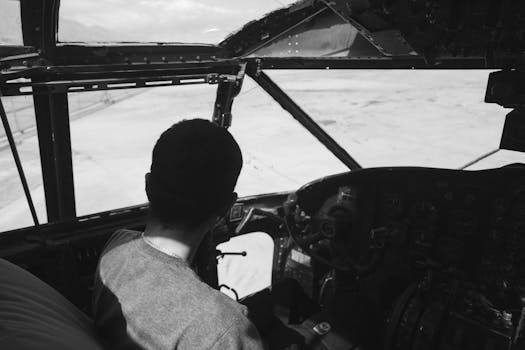You could do a college course like an introduction to cabin crew, or study a cabin crew module as part of a broader travel and tourism course.
Entry requirements
Entry requirements for these courses vary.
Flight attendants, also known as cabin crew, are key members of airline staff responsible for ensuring the safety and comfort of passengers during flights. Their duties include demonstrating safety procedures, serving food and drinks, assisting passengers with special needs, and dealing with emergencies. The role demands excellent customer service skills, the ability to stay calm under pressure, and a professional appearance. Training is provided by airlines and typically includes both classroom learning and practical experience. Flight attendants get the opportunity to travel to different countries, but the job can be physically demanding and involves time away from home.

Flight attendants in the UK typically earn between £18,000 and £28,000 per year, with experienced staff at major airlines earning up to £30,000 or more including allowances.
There were around 15,000 flight attendants employed in the UK aviation sector in 2023, with hundreds of new positions advertised annually by major airlines such as British Airways and easyJet.
Flight attendants often work irregular hours, including weekends and public holidays, with shifts that can last from 8 to 12 hours depending on flight routes.

Focuses on providing a premium service to passengers in the business class section, including serving high-quality meals and ensuring comfort on long-haul flights.

Specialises in training new flight attendants in safety procedures, customer service, and emergency protocols within an airline.
Works on private or chartered flights, catering to high-profile clients and adapting services to meet individual passenger needs.
You typically need at least 5 GCSEs at grades 9 to 4, including English and maths.
Most airlines require a minimum of GCSEs, but having additional qualifications, especially in languages or customer service, can be helpful. Some airlines will accept equivalent qualifications or relevant work experience. It is important to check the specific requirements of the airlines you are interested in.
You must be at least 18 (some airlines require 21), be in good health, and meet certain height and fitness requirements.
Flight attendants must be able to reach overhead lockers and be physically fit enough to perform safety duties. You may have to pass a medical exam and eyesight test. Airlines will also require you to be able to swim a certain distance unaided, as part of safety training.
Experience in customer service roles, such as retail or hospitality, is valuable.
Working in cafes, restaurants, hotels, or shops helps you build the communication and problem-solving skills needed for a flight attendant role. Many airlines look for candidates with experience interacting with the public and managing difficult situations.
Knowledge of other languages, especially European or worldwide languages, is an advantage.
Many airlines operate international flights and value staff who can communicate with a wide range of passengers. Consider taking language courses or using language learning apps to boost your proficiency.
Apply directly to airlines for cabin crew vacancies via their careers websites.
You will usually need to complete an online application, pass an assessment day, and attend interviews. Research each airline’s requirements and selection process carefully, as these can vary.
If your application is successful, you will complete airline-specific training before starting work.
Training covers safety procedures, first aid, customer service, and emergency drills. You must pass written and practical exams to become certified as cabin crew. This training is usually provided by the airline and lasts several weeks.
Explore relevant apprenticeships that can help you kickstart your career in Flight Attendant. Apprenticeships offer hands-on experience and training while earning a wage.
This page showcases various career options and the pathways to reach them. Each career listed here shares transferable skills and knowledge, making it easier for individuals to transition between them.
Your current career is highlighted to help you see how it fits into the broader landscape of potential career choices. By clicking on any career, you can learn more about it, including the training and education required to pursue it.
Remember, progressing in your career often involves further learning and training. This page provides insights into future career options as well as those that can lead up to your current one.
These career progression decisions are informed by comparing the skills and knowledge needed for different occupations, along with data on how people move between them. Explore the possibilities and discover the exciting journey ahead in your career!
Both flight attendants and cabin crew are responsible for ensuring the safety, comfort, and assistance of passengers during travel. They require excellent customer service skills, the ability to handle in-flight emergencies, and a good knowledge of safety procedures, making them closely aligned in terms of qualifications and responsibilities.
You can get into this job through:
You could do a college course like an introduction to cabin crew, or study a cabin crew module as part of a broader travel and tourism course.
Entry requirements for these courses vary.
You could apply to do a Cabin Crew Level 3 Advanced Apprenticeship.
This will take around 12 months to complete. You'll do on-the-job training and spend time with a college or training provider.
You'll usually need:
You could apply directly to airlines for a cabin crew job. Airlines set their own entry requirements, which can vary.
You'll be expected to have a good standard of spoken and written English. You'll also need to show that you have great customer service skills, so experience of working directly with the public is useful.
Some airlines and private training providers run short cabin crew preparation courses, which may help your chances of getting a job, though these are not essential.
Certain airlines have online career quizzes you can do to test whether working as air cabin crew is for you, before you apply.
Being able to speak a second language may give you an advantage for some jobs.
Explore other careers or use our AI to discover personalised paths based on your interests.
Address
Developing Experts Limited
Exchange Street Buildings
35-37 Exchange Street
Norwich
NR2 1DP
UK
Phone
01603 273515
Email
[email protected]
Copyright 2026 Developing Experts, All rights reserved.
Unlock expert-designed lessons, resources, and assessments tailored for educators. No credit card required.
Claim Your Free Trial →